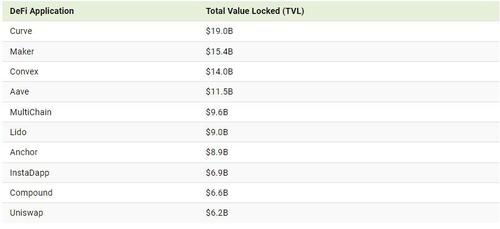Building Balanced Exposure To The Blockchain Economy
Blockchain technology extends far beyond Bitcoin, Dogecoin, and other popular cryptocurrencies, as it provides a foundation for verifiable financial systems and proof of ownership for digital goods and assets.
From privacy concerns to anti-trust issues, big tech has eaten away at the world’s trust in the technology sector. And, as Visual Capitalist's Niccolo Conte details below, as people search for better and more trustless solutions for their financial services, the blockchain economy is flourishing to meet their needs.
This infographic from MSCI outlines how quickly decentralized solutions and services have grown, and how investors can be a part of this exciting new sector.
The Three Key Trends of Blockchain Adoption
By cutting out the need for a centralized middleman that facilitates transactions, blockchains can provide more efficient systems to power three key trends of the fintech future:
-
Digital hard money and assets
-
Decentralized finance (DeFi)
-
Digital goods and collectibles
As the first cryptocurrency and deflationary monetary asset, Bitcoin is the ambassador for digital hard money. By having a fixed supply of 21 million bitcoin set in code and a decentralized network powering transactions on the network, Bitcoin provides anyone access to a deflationary digital asset that they can transfer in minutes without having to trust centralized intermediaries.
While Bitcoin pioneered the blockchain revolution over the past decade, further functionality built on blockchain technology is enabling digital goods and collectibles with non-fungible tokens (NFTs) along with more equitable and trustless financial systems through decentralized finance.
Decentralized Finance (DeFi) Makes Financial Services Accessible
Along with seeking decentralized hard money assets in the form of cryptocurrencies like Bitcoin, the world is looking for trustless financial services through which they can borrow, lend, and perform other essential financial services.
Decentralized finance (DeFi) enables these services through decentralized applications (Dapps) powered by smart contracts. Today, more than $260 billion is currently “locked” or engaged with some form of smart contract in a DeFi application.
Below are the 10 largest DeFi applications by the amount of value currently “locked” or engaged with the applications’ smart contracts.
Source: DeFi Llama
As of Jan 2022
From staking tokens within a protocol in exchange for governance votes to providing market liquidity by locking tokens up in exchange for a portion of trading fees, DeFi is providing functionality and incentives for participants in the blockchain economy.
What is the MSCI Blockchain Index?
The MSCI Blockchain Index was developed in collaboration with ARK Invest with the aim of representing the performance of a set of companies associated with the development of products and services for the blockchain economy.
From providing payments services for cryptocurrencies to the actual hardware products used for verifying blockchains, these companies fall into five core segments of the digital blockchain sector:
-
Developers of tech and protocols of decentralized finance like Dapps and smart contracts
-
Products and services for the infrastructure of digital markets like cryptocurrency exchanges and payment gateways
-
Providers of blockchain solutions and services through corporations
-
Hardware and software providers for the verification of blockchains
-
Buyers and sellers of cryptocurrency providing liquidity and facilitating payments
With a broad variety of industries contributing to the blockchain economy, companies like AMD, Visa, and the Intercontinental Exchange (ICE) are among the top constituents of the index.
As decentralized finance and other technologies bring about a trustless revolution for financial systems and the ownership of digital goods, the MSCI Blockchain Index ensures you aren’t left behind.
https://ift.tt/tkRIZYK
from ZeroHedge News https://ift.tt/tkRIZYK
via IFTTT






0 comments
Post a Comment